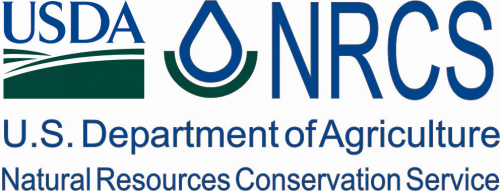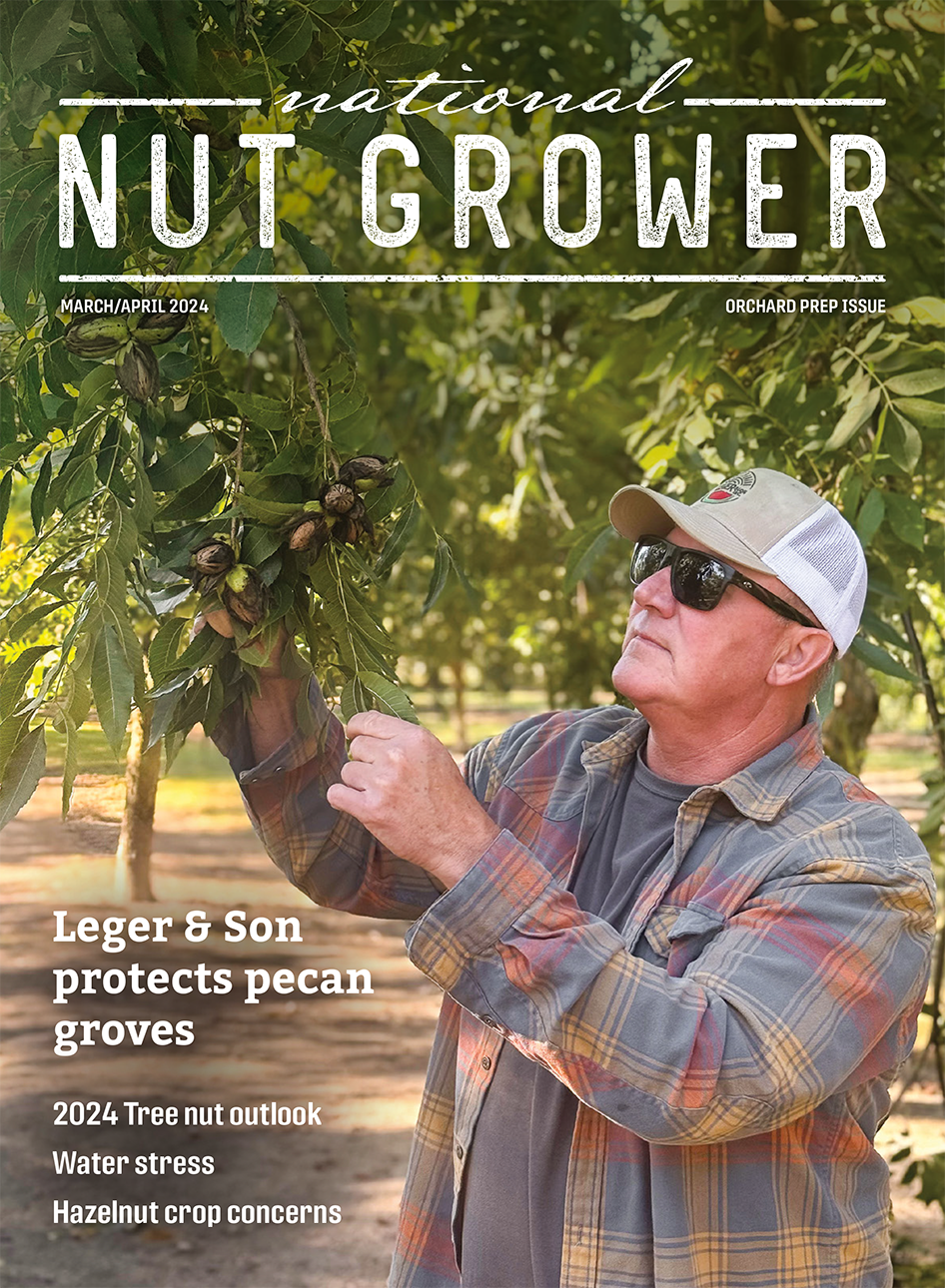
Apr 26, 2021California part of USDA effort to mitigate climate change, save resources
The USDA announced April 26 it is investing $330 million in 85 locally driven, public-private partnerships to address climate change, improve the nation’s water quality, combat drought, enhance soil health, support wildlife habitat and protect agricultural viability.
Projects are awarded through the Natural Resources Conservation Service (NRCS) Regional Conservation Partnership Program (RCPP).
Included is an allocation to Soil Health Management Systems for Northern California: California State University will support California’s Healthy Soils Initiative to help orchard/vineyard, rangeland, dairy and row crop producers implement Soil Health Management Systems. The project leverages contributions from 13 partners to improve soil function, water infiltration and availability and protect biodiverse habitats in Northern California agro-ecosystems. In addition, the project integrates carbon farm planning activities and will report on economic and social outcomes, in addition to conservation outcomes.
“The Regional Conservation Partnership Program is public-private partnerships working at their best,” NRCS Acting Chief Terry Cosby said in a news release. “These new projects will harness the power of partnerships to help bring about solutions to natural resource concerns across the country while supporting our efforts to combat the climate crisis.”
Across America, producers are seeing the impacts from climate change. Farmers, landowners and local communities can be a major part of the effort to combat climate change.
Under the Biden-Harris Administration, USDA is engaged in a whole-of-government effort to combat the climate crisis and conserve and protect our nation’s lands, biodiversity and natural resources including our soil, air and water. Through conservation practices and partnerships, including those through RCPP, USDA aims to enhance economic growth and create new streams of income for farmers, ranchers, producers and private foresters. Successfully meeting these challenges will require USDA and our agencies to pursue a coordinated approach alongside USDA stakeholders, including state, local and Tribal governments.
Through RCPP, conservation partners work in collaboration with NRCS to help farmers, ranchers and forest landowners throughout the nation to implement systems that conserve water and soil resources, improve the health of wildlife habitats and increase climate resilience.
RCPP partners offer value-added contributions to amplify the impact of RCPP funding. These projects offer impactful and measurable outcomes. Throughout its history, RCPP has leveraged partner contributions of more than $1 for every $1 invested by USDA, resulting in nearly $3 billion collectively invested in natural resource conservation on private lands. The Department anticipates the investments made today will generate at least $440 million in additional conservation funds by communities and other partners.
Examples of the 2021 RCPP projects include:
- Lancaster’s Common Agenda for Clean Water (Pennsylvania): Lancaster Clean Water Partners brings together a diverse group of organizations including non-profits, government and businesses with a goal of delisting impaired waters to make Lancaster County’s streams clean and clear by 2040. The partnership will use a custom screening tool to identify critical lands for water quality improvement. An innovative incentive structure will be used to reward producers for installing riparian forest or grass buffers, or for adopting regenerative farming practices.
- The Working Farms Fund (Georgia): The Conservation Fund, in collaboration with six local partners, proposes to establish the first-of-its-kind program in the country, known as the Working Farms Fund. The project, based on results from a successful Conservation Innovation Grant, will permanently protect farmland across the Atlanta metropolitan foodshed and create opportunities for ambitious, diverse farmers to access affordable farms through an innovative buy-protect-sell model. Partners, like Emory University and the University of Georgia Small Business Development Center will help report on the carbon sequestration, social and economic outcomes of the project. The partnership is committed to ensuring that at least 20% of its participating farmers come from historically underserved groups.
- Northern New Jersey Small Farm Food Link Conservation Project: The Urban Agriculture Cooperative proposes to deliver technical and financial assistance to new and historically underserved urban farmers in Northern New Jersey. Implementation of seasonal high tunnels, composting facilities, cover crops and irrigation practices will improve soil health and irrigation water use efficiency, as well as help urban producers realize lower input costs and more production. Participating farms will also see new revenue streams from composting activities. The project will increase opportunities for black, Indigenous, people of color, women, immigrants and new young farmers to participate in all aspects of the local food economy from production to retail. Historically underserved farmers pursuing land tenure will benefit and strengthen their linkages with rural farmers to bring more food to urban residents who lack fresh food access.
- Building Ranch Resiliency in South Dakota and Nebraska: By 2024, this partnership of eight organizations proposes to increase rangeland resiliency on 40 South Dakota and Nebraska ranches. The diverse partnership will contribute expertise on grazing management, wildlife habitat improvement and water development to improve range condition. A subset of the participating producers will be enrolled, on a voluntary basis, in World Wildlife Fund’s Ranch Systems Viability Planning project through which ranchers gain expertise in financial strategies, marketing, diversification and estate planning.
- Tri-State Western Lake Erie Basic Collaboration: Indiana, Michigan and Ohio State Departments of Agriculture propose to join forces with over 30 partners to help participating farmers improve soil health and reduce nutrient loading impacts in the Western Lake Erie Basin. The partnership will use sophisticated targeting tools to work with producers and landowners operating near the Maumee headwaters, an area identified as a source of high levels of excess phosphorus, with technical and financial assistance opportunities.
- Arkansas-Louisiana Open Pine Landscape Restoration: The AR-LA Conservation Delivery Network Open Pine Landscape Restoration partnership proposes to advance the recovery of species of conservation concern by implementing Desired Forest Condition management practices across 30,000 acres of private lands in Arkansas and Louisiana. American Bird Conservancy and 19 partners plan to use several innovative tools and approaches to target conservation funds to lands critical for the protection of species such as Northern Bobwhite, Henslow’s and LeConte’s sparrows, Louisiana Pine Snake, and Red-cockaded Woodpecker. Partnerships with the University of Arkansas-Pine Bluff and other entities, along with a tailored program and incentive package, will help ensure that Historically Underserved farmers participate meaningfully in the project.
- Farmland & Water Quality Conservation Initiative (Michigan): The Farmland & Water Quality Conservation Initiative aims to benefit the long-term economic, social, and environmental health of Ottawa County by protecting surface and groundwater quality and improving aquatic and wildlife habitat in the Macatawa, Lower Grand, and Pigeon River watersheds. Project partners plan to develop a watershed model using the USDA-developed Agricultural Conservation Planning Framework to identify lands where implementation activities targeting both surface and groundwater conservation would have the greatest impact.
See the interactive map of awarded RCPP projects here.
There are currently 336 active RCPP projects that have engaged more than 2,000 partners. For more information, visit the RCPP website.







